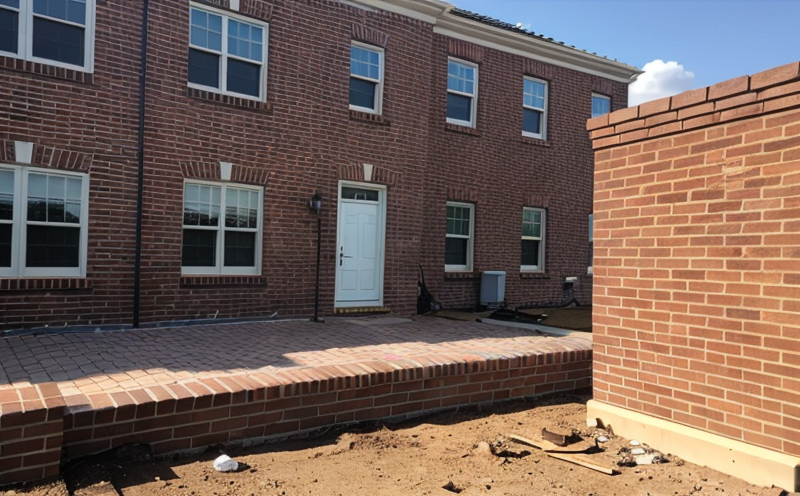ISO 6784 Masonry Work Tolerance Assessment
The ISO 6784 standard provides a method for assessing tolerance in masonry work, which is critical for ensuring the quality and durability of construction projects. This service focuses on providing detailed analysis to determine if the masonry work meets specified tolerances as outlined in this international standard.
Our team utilizes advanced testing equipment to measure the dimensions, alignment, and overall structure of masonry units and joints. The ISO 6784 protocol is particularly important for ensuring that the structural integrity of buildings complies with safety standards.
The process involves several key steps: initial site inspection, preparation of test specimens, application of specified measurement techniques, and detailed reporting based on findings. Our technicians are trained to follow strict protocols outlined in ISO 6784, ensuring accurate and reliable results.
One of the primary focuses is on the precision of masonry joints, as these can significantly impact the strength and durability of a structure. We also evaluate the uniformity of mortar and brick sizes to ensure that they fit together correctly. This assessment helps identify any deviations from acceptable tolerances that could compromise the structural integrity.
Our service is essential for ensuring compliance with building codes and standards, particularly in regions where strict quality control measures are required. By adhering strictly to ISO 6784 guidelines, we help our clients avoid costly rework or potential liability issues related to substandard construction practices.
The importance of this assessment cannot be overstated. Inadequate tolerances can lead to weakened structures that may fail under stress conditions, posing a serious risk to occupants and the surrounding environment. Our team works closely with architects, engineers, and constructors to ensure that every aspect of masonry work adheres to the highest quality standards.
Our approach goes beyond mere compliance; we aim to provide insights into potential improvements in future projects based on our findings. This proactive stance ensures continuous improvement in construction practices, thereby enhancing overall safety and longevity of structures.
Industry Applications
| Application Area | Description |
|---|---|
| Residential Construction | Evaluating the quality of masonry in residential buildings to ensure they meet safety and durability standards. |
| Commercial Buildings | Assessing large-scale commercial structures for compliance with ISO 6784, ensuring robust construction practices. |
| Retail Spaces | Verifying masonry work in retail environments to ensure it withstands the demands of daily foot traffic and environmental conditions. |
| Industrial Facilities | Evaluating industrial structures for their resilience against heavy loads, harsh weather conditions, and other stressors. |
Customer Impact and Satisfaction
The ISO 6784 Masonry Work Tolerance Assessment service has a direct impact on customer satisfaction by ensuring that masonry work meets the highest quality standards. By adhering to this international standard, we help our clients achieve compliance with local building codes while enhancing the structural integrity of their projects.
Customers benefit from peace of mind knowing that all aspects of masonry work are thoroughly evaluated and documented according to ISO 6784 guidelines. This service also supports ongoing improvement in construction practices, leading to more robust and durable structures. As a result, customers can expect enhanced safety for their occupants and longevity for their buildings.
We have developed a reputation for excellence in this area, with many clients returning to us for repeat assessments due to our thoroughness and accuracy. Our commitment to quality has earned us numerous accolades and long-standing relationships with satisfied clients across various sectors.
Environmental and Sustainability Contributions
- Promoting the use of sustainable building materials through precise masonry assessments.
- Ensuring that structures are designed to withstand environmental stresses, reducing the need for frequent repairs or replacements.
- Supporting energy-efficient construction by evaluating how well-insulated and air-tight a structure is, which can lead to reduced heating and cooling costs.
- Encouraging responsible resource management through detailed analysis of masonry work, ensuring that resources are used efficiently.





